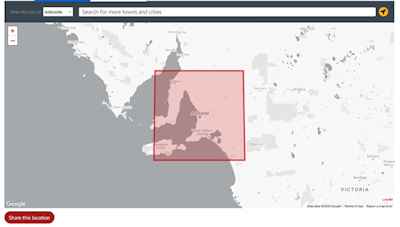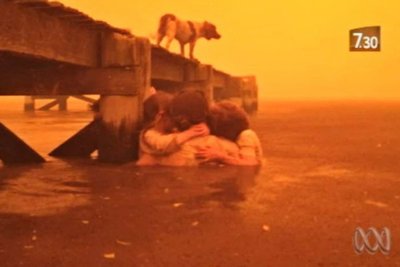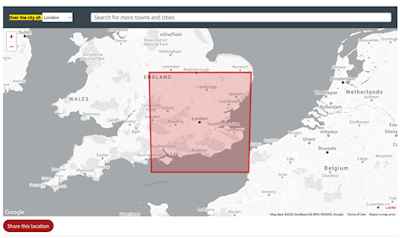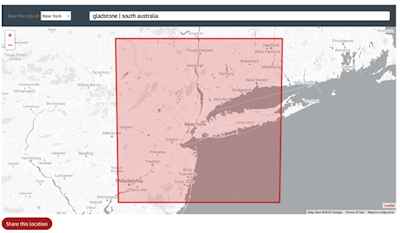The Fires
The Revised Common Lectionary set for January 12 is the Baptism of Jesus in Matthew 3:13-17. Counter intuitively, baptism in water is intimately linked to fire in the Christian tradition. There are old traditions which saw God deliberately punishing people, and Matthew was not quite sure how to deal with those intuitions. His transitional thinking is well described by John Petty:
Matthew, more than any other gospel, is concerned about "righteousness"-- repentance, right action, bearing fruit--and the punishment that awaits those who don't get it or do it. :
At the same time, Matthew undermines that same position as often as he affirms it. Only Matthew tells the story of the Laborers in the Vineyard with its radical vision of universal equality.:
John represents one side of the argument, the punishment that awaits those who don't get it right. This is a judgment that Matthew calls us to take seriously. This judgment, however, is trumped--and soundly trumped--by the ministry of Jesus wherein the unlovable are loved, the outcasts accepted, and sinners party with God. (Quoted here):
The mature Christian tradition (although certainly not the judgement laden tradition of the Trumps and others which use the tradition for their own purposes) sees that judgement is what we bring upon ourselves by the choices we make in living.:
Gospel: Matthew 3:1-2, 9-17, 4:1-3
When we sit in church next Sunday, fire will be upon people's mind. Will older folk who have paid attention to the news, along with their grief, be secretly glad of coming death so that they may avoid what is to come? What will be in the hearts of younger folk who must live through what is coming? They tell me they are "terrified for my children," and that they "see no hope for our survival." My neighbour says, "Humankind is working for its own destruction."
There is something different about the fires this year. It's only January 6 and already in this fire season twice the area of the Amazon fires has been burned here in Australia. The maps of the UK and the US in this post, already out of date by the time of your reading, don't mean much to me because the 5.8 million hectares (in excess of 14.3 million acres) is an inconceivable figure.  But when I apply the same overlay of the burned area to my own state of South Australia I am filled with foreboding. I understand we are on the burning edge of climate change; we are living the future which is coming to the rest of the planet. (You can click on the images to see them full size.)
But when I apply the same overlay of the burned area to my own state of South Australia I am filled with foreboding. I understand we are on the burning edge of climate change; we are living the future which is coming to the rest of the planet. (You can click on the images to see them full size.)
Matthew says a lot about burning. The lectionary tends to leave it out. I suppose this is because it seems unworthy of the Gospel, but perhaps it is time to reconsider.
I have expanded the reading set for the day to include some of the surrounding text.
3:1 In those days John the Baptist appeared in the wilderness of Judea, proclaiming, 2‘Repent, for the kingdom of heaven has come near.’ ... 9Do not presume to say to yourselves, “We have Abraham as our ancestor”; for I tell you, God is able from these stones to raise up children to Abraham. 10Even now the axe is lying at the root of the trees; every tree therefore that does not bear good fruit is cut down and thrown into the fire.
11 ‘I baptize you with water for repentance, but one who is more powerful than I is coming after me; I am not worthy to carry his sandals. He will baptize you with [the is not in the Greek] Holy Spirit and fire.fn112His winnowing-fork is in his hand, and he will clear his threshing-floor and will gather his wheat into the granary; but the chaff he will burn with unquenchable fire.’
13 Then Jesus came from Galilee to John at the Jordan...
Do you see that Jesus comes into a world of fire and judgement? John understood, as does Matthew, that we live in a world of consequence. How we live shapes the world in which we live. It is a simple feedback loop true of our "social ecology" and of ecology of land and sea.
"Then Jesus came from Galilee to John at the Jordan," the place of Israel's entry to the Promised Land,
to be baptized by him. 14John would have prevented him, saying, ‘I need to be baptized by you, and do you come to me?’ 15But Jesus answered him, ‘Let it be so now; for it is proper for us in this way to fulfil all righteousness.’ Then he consented. 16And when Jesus had been baptized, just as he came up from the water, suddenly the heavens were opened to him and he saw the Spirit of God descending like a dove and alighting on him. 17And a voice from heaven said, ‘This is my Son, the Beloved, [or my beloved Son] with whom I am well pleased.’
4:1Then Jesus was led up by the Spirit into the wilderness to be tempted by the devil. 2He fasted for forty days and forty nights, and afterwards he was famished. 3The tempter came...
There are two Old Testament quotations in the reading. Later I will call these "cultural references" because, unlike us, Matthew's listeners will recognise the text and know the scrolls from which they come.
Isaiah 42:1-2
Here is my servant, whom I uphold,
my chosen, in whom my soul delights;
I have put my spirit upon him;
he will bring forth justice to the nations.
Psalm 2:7-8
7 I will tell of the decree of the Lord:
He said to me, ‘You are my son;
today I have begotten you.
8 Ask of me, and I will make the nations your heritage,
and the ends of the earth your possession.
Matthew has made a change from Mark. In Mark, Jesus' first words are these: ‘The time is fulfilled, and the kingdom of God has come near; repent, and believe in the good news.’ (Mark 1:15) Jesus will repeat this in Matthew 4:17: "17From that time Jesus began to proclaim, ‘Repent, for the kingdom of heaven has come near.’" But his first words; that is, the defining words of the key character of this gospel— they are a rhetorical marker— are something different. As John seeks to refuse to baptise him, Jesus says
‘Let it be so now; for it is proper for us in this way to fulfil all righteousness.’
Righteousness is "in the broad sense, the state of [one] who is such as [they] ought to be." (Thayer) Some parts of the tradition see this in very forensic or juridical terms where we measure up to God's standards, or we don't. But there is a much more wholistic and spiritually healthy understanding of this term. To fulfil righteousness is to be, or to be becoming, the fully human person God created us to be; indeed, to be becoming made in the image of God.
In being baptised, Jesus is saying that he, too, repents. I'm not forgetting Hebrews 4:15 where Jesus is "one who in every respect has been tested [or tempted] as we are, yet without sin." Repentance means that as we become aware of ourselves we continually choose or turn to the path to life; we sin because, and when, we don't turn. Parts of the early church didn't like the idea that Jesus was baptised by John; culturally it seemed to make the Son of God subordinate to John the Baptist. But in being baptised, Jesus was subordinating himself— being obedient— to God's call to repentance, which is... God's call to life.
Now let's look quickly at the structure of Matthew. It begins with the birth narratives and the baptism and temptations of Jesus. It is not until Chapter 4:12 that Jesus begins to teach. The birth narratives, for Jewish ears, establish that Jesus is, as Paul put it, (Phil 3:5) "a Hebrew born of Hebrews— " of course he can be the Messiah! And what follows in Chapter 3 through to 4:12 establishes that he is indeed worthy to be the Messiah. "Worship the Lord your God, and serve only him." (Matt 4:12) Jesus not only says this, he shows it is what he is doing by his baptism and his refusal of the way of the devil.
What follows in Matthew is his understanding of how to live this out, his understanding of what a life of repentance is. And then, at the other end of Matthew there is the closing section. After the great and terrible parable of consequence of Matthew 25:31-46, we see that the fire of death does not destroy Jesus, but completes him. Matthew's whole gospel questions each one of us: what will the testing of life, the fires, and the drowning, show about me? Will they complete me?
I come to this conclusion because of what happens in Jesus' baptism.
There is some obvious symbolism in the story:
1. To go down into the Jordan is to enter the Promise Land.
2. The story highlights Jesus and who he is. As I heard Jack Spong once say,
Moses came to the Jordan; Jesus actually enters it. Moses stood at the Red Sea and parted the waters, as the waters parted for Joshua, but for this greater Moses and greater Joshua the very heavens are parted! (Here)
3. Jesus is named as Son of God. If you have seen the son of the king in Matthew's culture, you have seen the king. If the Son is with you, the King is with you.
There is also deeper and confronting symbolism in the baptism. Firstly, Dylan Breuer says
When we say that Jesus is God's son, we're also making claims about God.
That's the point that was scandalous almost to the point of blasphemy for many. "Like father, like son," as they say. When we say that Jesus is God's son, going about the family business, we are saying not only that Jesus is like God; we are saying that God is like Jesus … We are saying that what Jesus did -- his feasting indiscriminately with Pharisees and sinners alike, his free association with "loose" (unattached) women and taking them into his inner circle as disciples, his refusal to defend his own honor or his families(sic) by retaliating, even to the point of his death on a cross -- was God's business on earth. Indeed, we're saying that the best framework through which we can interpret what God's business on earth looks like is Jesus' behavior. (Quoted here)
And secondly, baptism is burial.
I'm not sure what I expected when I was baptised. I was thrown off my feet and fell under the surface, out of control, shocked, held down, struggling to get up. This is baptism: a dying, a full immersion, a drowning in the unexpected, rising to something else.
Baptism is not something we do. It is done to us. (Andrew Prior)
On reflection, I do know what I thought: I had some idea I would lower myself under the water, but I was thrown into something way out of my control.
Jesus' baptism throws him, drives him, sends him... straight out into the wilderness and hie is left vulnerable to everything which comes. Only we who are privileged or naïve think that to be led by the Spirit of God is a gentle or certain thing.
Rather,
Epiphany is deep water — you can't stand on the shore and dip your toes in. You must take a breath and plunge. Yes, baptism promises new life, but it always kills before it resurrects.
What reason for hope, then? What shall we hang onto in this uncertain season of light and shadow? New Testament scholar Marcus Borg suggests that Jesus himself is our thin place. He's the one who opens the barrier, and shows us the God we long for. He's the one who stands in line with us at the water's edge, willing to immerse himself in shame, scandal, repentance, and pain — all so that we might hear the only Voice that can tell us who we are and whose we are in this sacred season. Listen. We are God's own. God's children. God's pleasure. Even in the deepest water, we are Beloved. (Debie Thomas)
We have read about the baptism in water, but there is always fire.


Walker and Holmes Families, Dunally 2013 and Finn, aged 11, Malacoota 2017
But beyond this more obvious symbolism there is something we tend to miss
Matthew's baptismal story has cultural references to the Creation narrative and to the Exodus into the Promised Land. And these references ground the gospel in reality. I begin with Matthew's quotation of Isaiah 42 and Psalm 2, and ask, what is the Gospel? (Remember that Matthew does not quote the Old Testament as a proof text as we tend to do. He is saying, "Read this to see how righteousnessfn2 is beingfulfilled.")
The Gospel is that Kingdom of Heaven is at hand. (Matt 3:2, 4:17)
 If we look for the meaning of this in a prosperity gospelfn3 then there are only two options for us. One is that Jesus was wrong, for there will not be more prosperity. The days of our greed and idolatry are as much over as were the affluent days of the Northern Kingdom of Israel, and the glory days of Judea, as Assyria, and Babylon, and Rome, burned those nations down. If we look for the prosperity gospel of the sort of Pentecostal movementfn4 to which the Prime Minister belongs, and if we are beholden to the Empires built upon fossil fuels, then we will come into our real church with our hands full of coal, and stoke the fires of our own dying. We should be afraid.
If we look for the meaning of this in a prosperity gospelfn3 then there are only two options for us. One is that Jesus was wrong, for there will not be more prosperity. The days of our greed and idolatry are as much over as were the affluent days of the Northern Kingdom of Israel, and the glory days of Judea, as Assyria, and Babylon, and Rome, burned those nations down. If we look for the prosperity gospel of the sort of Pentecostal movementfn4 to which the Prime Minister belongs, and if we are beholden to the Empires built upon fossil fuels, then we will come into our real church with our hands full of coal, and stoke the fires of our own dying. We should be afraid.
It is time to repent, or to stop the pretence of Christianity and set about doing the best we can to preserve our privilege in a dying land and a dying planet.
But what if the Kingdom of Heaven (which is the same as the Kingdom of God, except Matthew is too much a Jew to use The Name so casually) is about life, and about being made complete, in a manner far more profound than the idolatry of possessions. What if this is life:
In Psalm 2, the king, the Messiah is singled out from the raging nations that are rising up against the Lord and his anointed. The inundation of baptism draws Jesus out of the inundation of the nations raging against one another. In Jesus, we too are drawn out of this inundation and so freed from raging against everybody else. But we are not freed from being the target of raging nations when they unite against the one who has been freed from their wrath. These baptismal words spoken to Jesus also refer to Isaiah 42:1, the first line of the first song of the Servant of Yahweh. Throughout these songs, the Servant has been called out of a violent society to become instead the victim of that society’s violence. Unlike the Psalmist who threatens the raging nations with a rod of iron, (Ps. 2:9) the Servant does not retaliate in any way against the violence inflicted on him. In baptism, we too are overwhelmed by the Servant’s suffering, but then we are also overwhelmed by God’s vindication of the Servant. (Andrew Marr Moving and Resting in God’s Desire, pp. 189-90 quoted by Paul Nuechterlein)
After Isaiah 42 and Psalm 2, we come to Exile and Creation.
Davies notes that "Israel was adopted and became God's 'son' with the Exodus from Egypt, at the crossing of the Red Sea. (cf (cf Matthew 2:15 and Hosea 11:1 "When Israel was a child, I loved him, and out of Egypt I called my son.") He says "the theme of a new exodus runs throughout Matthew 1-7." Perhaps the image of the dove was already hovering in the air for the gospel writers for Davies says, "In the Mekilta the Holy Spirit rests upon the people as they cross the Red Sea and they are compared to a dove..."
But there is also a reference to the creation narrative of Genesis in Jesus' baptism, for in Genesis 1:2 where the "wind from God swept over the face of the waters" (NRSV) the word swept has has to do with fluttering or hovering.
Creation is an "emergence from a watery chaos." Davies quotes Gen 1 and Isa 43:16-20 as he makes this point. Isaiah 43 is a remarkable chapter, which at first sight seems to say nothing about the creation narrative. But it is about water and fire.
When you pass through the waters, I will be with you;
and through the rivers, they shall not overwhelm you;
when you walk through fire you shall not be burned,
and the flame shall not consume you... (43:2)
And then we see that in the return from Exile, "he who created you, O Jacob,
he who formed you, O Israel", the creating Lord says:
I am the Lord, your Holy One,
the Creator of Israel, your King.
16 Thus says the Lord,
who makes a way in the sea,
a path in the mighty waters,
17 who brings out chariot and horse,
army and warrior;
they lie down, they cannot rise,
they are extinguished, quenched like a wick... (43:15-17)
And then there is b. Hag* 15a in which "the hovering of the Spirit over the face of the waters [of Genesis 1:2] is represented more precisely as the hovering of a dove. The meaning is then once again that the last things are as the first: Jesus inaugurates a new creation."
Davies then points to a fragment from Qumran, (4Q521) where
"in line 6... the language of Gen 1:2 characterizes the eschatological redemption: just as the Spirit once hover over the face of the waters, so too, at the end, will the Spirit hover over the saints and strengthen them. This pre-Christian application of Gen 1.2 to the eschatological future has the Spirit hovering over human beings as opposed to lifeless material. The striking parallel with Matthew evidences a similar creative application of Gen 1.2" (Davies pp47)
I found the fragment online. (Accessed: 6 Jan 2020)
For the Lord will consider the pious and call the righteous by name, and his spirit will hover upon the poor, and he will renew the faithful with his strength. For he will honor the pious upon the throne of an eternal kingdom, freeing prisoners, giving sight to the blind, straightening out the twis[ted.] And for[e]ver shall I cling to [those who] hope, and in his mercy [...] and the fru[it of ...] not be delayed. And the Lord will perform marvellous acts such as have not existed, just as he sa[id, for] he will heal the badly wounded and will make the dead live; he will proclaim good news to the poor and [...] he will lead the [...] and enrich the hungry. [...] and all [....]"
Matthew lived in a time of fire. His people remembered Jerusalem. The massacre of children by Herod was a relative commonplace. To be Jesus' follower is to live as Jesus did, in a time of fire. It is to be thrown off balance, drowned, and then to go out into wilderness and be burned. But that burning and drowning is the place of the dove. It is where the spirit is. It is the bringing through fire and water to life. Jesus' baptism is a sacrament of his crucifixion and resurrection.
And Matthew writes in a time which looked for the renewal of creation. It looked for a new earth. That idea probably seemed as fantastical then as it does now. It is a "holy and hopeful speculation" which may be completely wrong.
There is a fine line here. In the end, somehow, surely, salvation must be about the restoration of creation, if God is not a monster. We can use this hope as a death avoidance technique, which I suspect will always incline us towards the idea that that material success is "the ideal Christian life." Or we can understand that the baptism of Jesus is showing us that the material success and safety of God's imagination (rather than ours) can only be accessed through death, and through giving of ourselves. Again and again Jesus will say, "You have heard... but I say to you..." Life is not what we have thought. It is only by facing death, even by fire, that we will now a peace which is not, in the end, a denial. And we cannot prove this except by living it. That's why we call a repentant life a life of faith and trust. May peace be upon you in these days.
Andrew Prior (2019)
Direct Biblical quotations in this page are taken from The New Revised Standard Version Bible, copyright 1989, Division of Christian Education of the National Council of the Churches of Christ in the United States of America. Used by permission. All rights reserved. Please note that references to Wikipedia and other websites are intended to provide extra information for folk who don't have easy access to commentaries or a library. Wikipedia is never more than an introductory tool, and certainly not the last word in matters biblical!
Also on One Man's Web
Matthew 3:(1-12) 13-17 - There is always fire (2017) Podcast
Matthew 3:13-17 - Coming Home (2017)
Matthew 3:13-17 - The Work of Christmas is begun (2014)
Matthew 3:13-17 - Will we be baptised? (2011)
Footnote 1: "Here is precisely the background requisite for interpreting John's talk of baptism in Spirit and in fire. Fire and Spirit are not two things but one — 'fiery breath'. At the boundary of the new age, all will pass through the fiery breath of God, a stream which will purify the righteous and destroy the unrighteous." (Davies pp 44-45 Quoted here)
Footnote 2: "'To fulfil' occurs 16 times in Matthew." 13 of those are about fulfilling Old Testament prophecies, one is about filling a net and one "an ironic fulfilment of prophecy.... So when Jesus fulfils all righteousness, he is fulfilling scripture." (Davies pp46)
Footnote 3: Prosperity theology, understood more deeply, is the expectation that adherence to a particular theology, the acceptance of the right set of doctrines, will ensure an easy rescue and relief from our sins; that is I will "live long and prosper." It is the old Deuteronomic theology of reward and punishment which had little understanding of oppression and privilege and plain luck. (Here)
Footnote 4: Mairead Shanahan writes:
In a Sunday sermon broadcast on the Australian Christian television channel Planetshakers, Senior Pastor Ashley Evans says that “God’s plan is for us to have dominion”. This interpretation of creation stewardship places humans at the top of the ecological hierarchy. God creates life on earth and humans are the stewards of the natural environment, while at the same time humans hand true control of creation over to God. The key to understanding what Australian neo-Pentecostal churches believe when it comes to climate change lies in these wider views on creation care. God may have appointed humans for stewardship over living things, but what exactly care for God’s creation entails is up to interpretation. Several Australian neo-Pentecostal leaders have links to mining companies, energy providers, and property developers. Lucas Jacometti, Pastor of the C3 Church in Hobart, says in a sermon on climate change scepticism:
“Only Jesus has the power to shift the climate.”
In 2016, the Tasmanian newspaper The Mercury reported that Jacometti, in partnership with oil prospector Malcolm Bendall, wants to develop the Tasmanian central highlands into an oil reserve. Jacometti lobbied state and federal members of parliament, government departments, and public servants to get oil exploration on the Tasmanian state agenda. For Jacometti, natural resources are there for humans, as the stewards of creation, to use as they see fit because in his justification Jesus is the one who will take care of the climate. While the Australian neo-Pentecostal churches remain unforthcoming in their specific views on anthropogenic climate change, when these churches discuss creation stewardship they appear to support the view that God will take care of the climate. Human responsibility for ecological issues does not enter into their interpretation of how best to care for God’s creation.
The Australian neo-Pentecostal endorsement and support of consumer capitalism points to their political leanings and are a further key to their views on climate change. The churches see the role of the state as minimal, and success in the business sphere, without the help of the state, is central to their vision of the ideal Christian life. (Mairead ShanahanAustralian neo-Pentecostal perspectives on anthropogenic climate change)
* My colleague Rev Dr. Vicki Balabanski explains b. Hag: Anything starting with b. refers to a Babylonian tractate from the Talmud (as opposed to the Palestinian or Jerusalem version of the Talmud). In this case, b.Hag. refers to the Babylonian version of tractate Haggigah (or Chagiga/h, depending on the transliteration from the Hebrew). This means 'Festival Offerings', and the tractate is in three chapters. 15a is in chapter 2, and discusses how a virgin could, or could not, conceive, and also discusses whether there could be two powers in heaven. Here is a link: https://www.sefaria.org/Chagigah.15a?lang=bi


